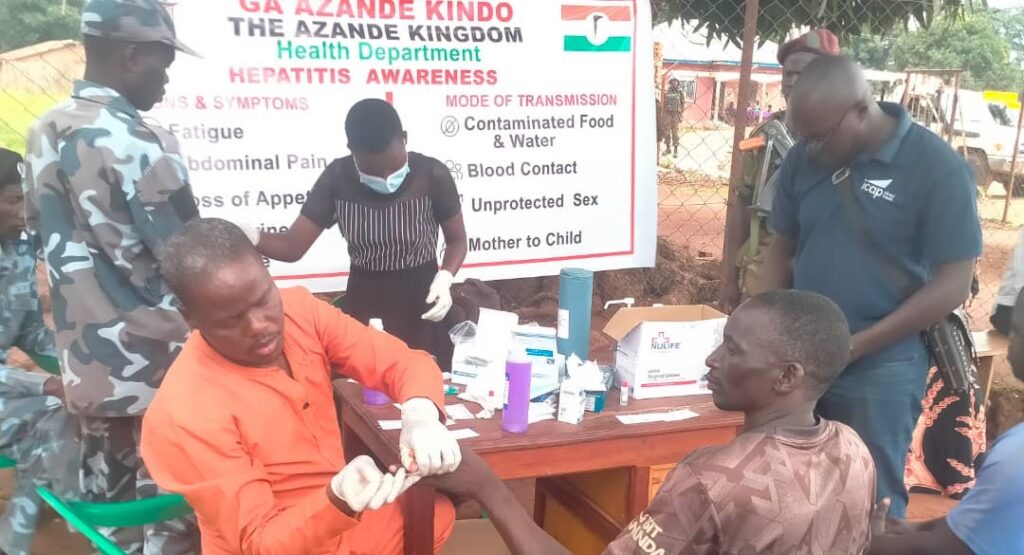Health officials in the Azande Kingdom in South Sudan’s Western Equatoria state have registered 396 confirmed cases of hepatitis B since June, they announced Tuesday, citing a critical shortage of vaccines and treatment facilities.
The cases were identified during a four-month screening and vaccination campaign led by the kingdom’s health department.
Siro Peter David, the health minister for the Azande Kingdom, told Radio Tamazuj that more than 1,700 people were screened at the royal palace.
Of the 396 confirmed cases, 185 are women, 161 are men and 50 are children, Siro said. He added that more than 500 people who tested negative have since been vaccinated.
The official expressed grave concerns about the region’s capacity to handle the outbreak, pointing to a lack of vaccines, dedicated treatment centers and machines to monitor patients’ viral load.
“We are forced to refer patients to Juba for treatment, but transport costs remain a major burden for families who cannot afford it,” Siro told journalists in Yambio. Juba, the national capital, is hundreds of kilometers away.
He issued an urgent appeal for support, warning that the situation could deteriorate rapidly. “Our message is clear — if partners and the government do not step in, our people will suffer greatly because cases are increasing daily,” Siro said.
The outbreak is not confined to Yambio, according to Zunga Doris Jackson, a clinical officer with the Azande Kingdom’s Primary Health Care Centre.
She reported cases in the neighboring counties of Ezo, Nzara and Maridi, but said transport challenges and a shortage of testing kits are hindering a broader response.
“The population is high, yet we lack enough vaccines and testing kits,” Jackson said. “We call on well-wishers to support us with transport, testing kits, and other necessities.”
Wanga Emmanuel, the chairperson of the Civil Society Network in Western Equatoria, praised the Azande Kingdom’s initiative under King Atoroba Peni Rikito. He called on the national government and international partners, such as the World Health Organization, to bolster the local campaign.
“Hepatitis B and C have claimed many lives. What the Azande Kingdom has started should serve as a basis for stronger government and partner support,” Wanga said.
Officials from the state or national Ministry of Health could not be immediately reached for comment.
Hepatitis B is a potentially life-threatening liver infection caused by the hepatitis B virus. It is a major global health problem and can cause both acute and chronic disease.
It is spread when blood, semen, or other body fluids from a person infected with the virus enters the body of someone who is not infected.
Powerful antiviral drugs can effectively control the virus.




